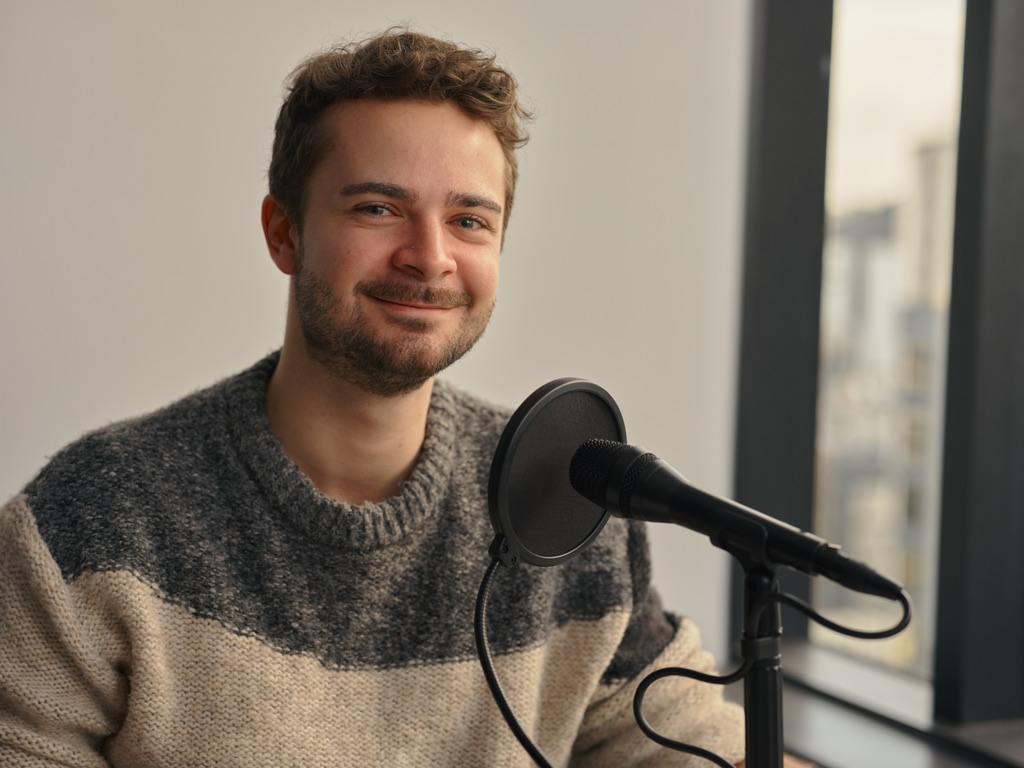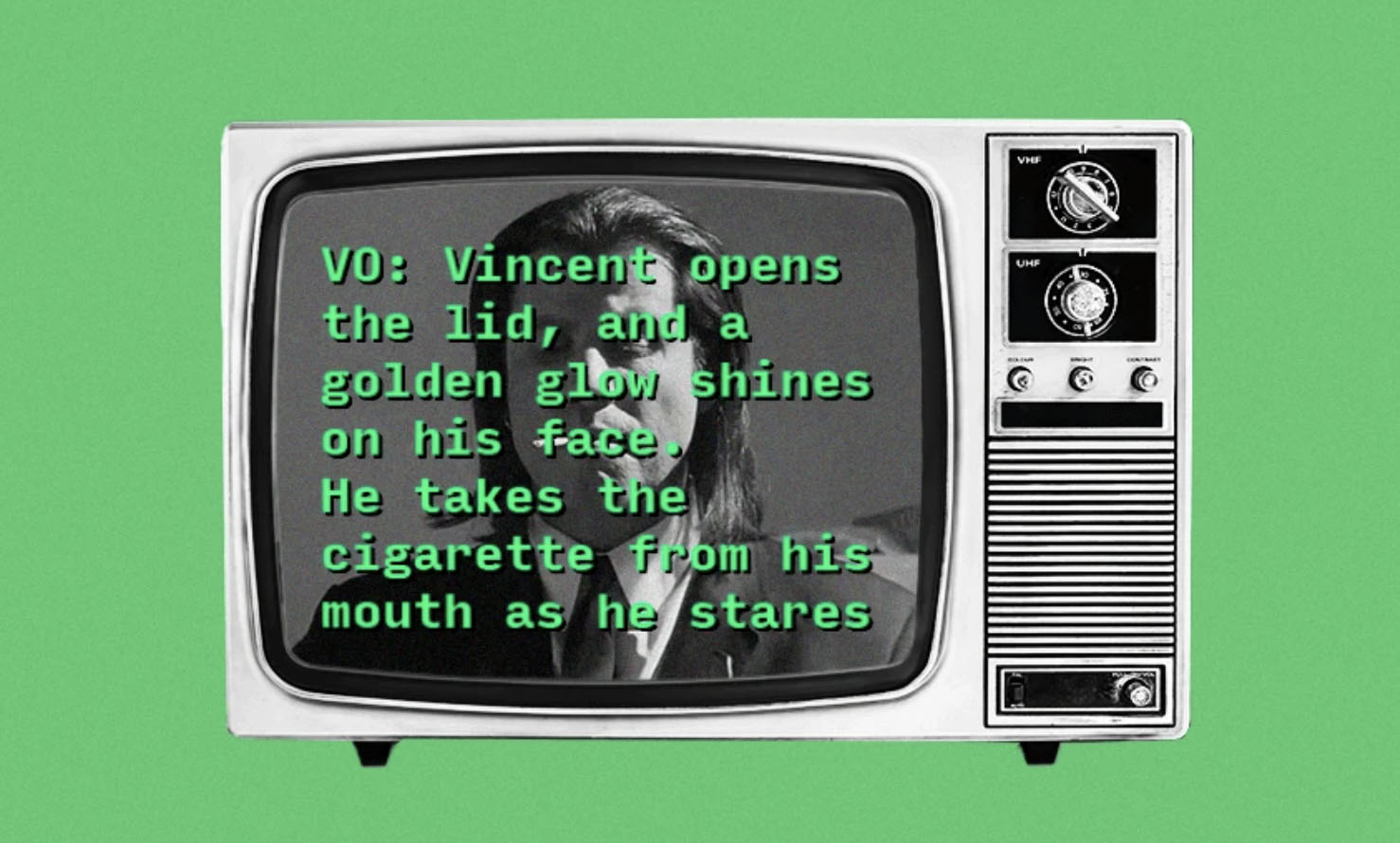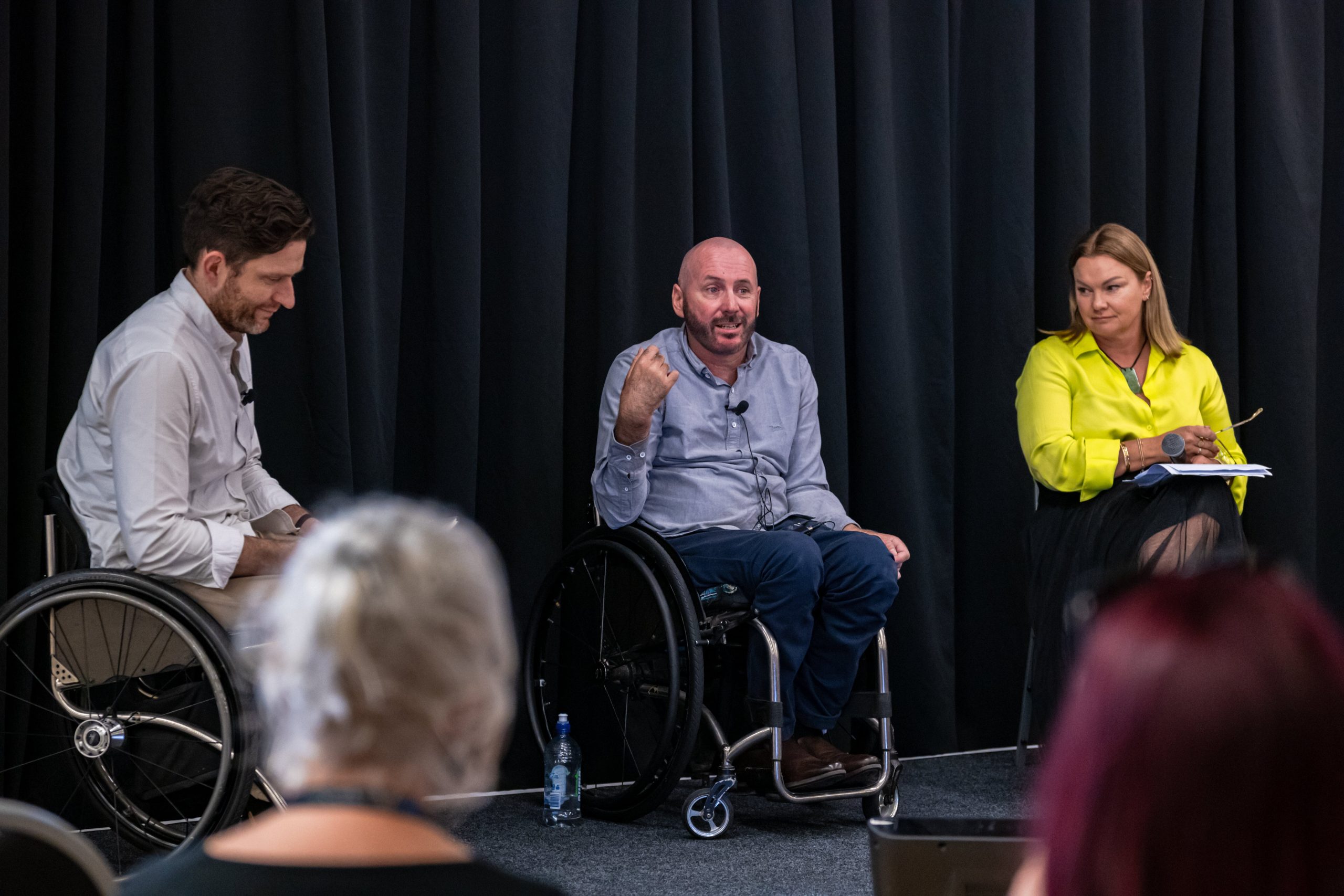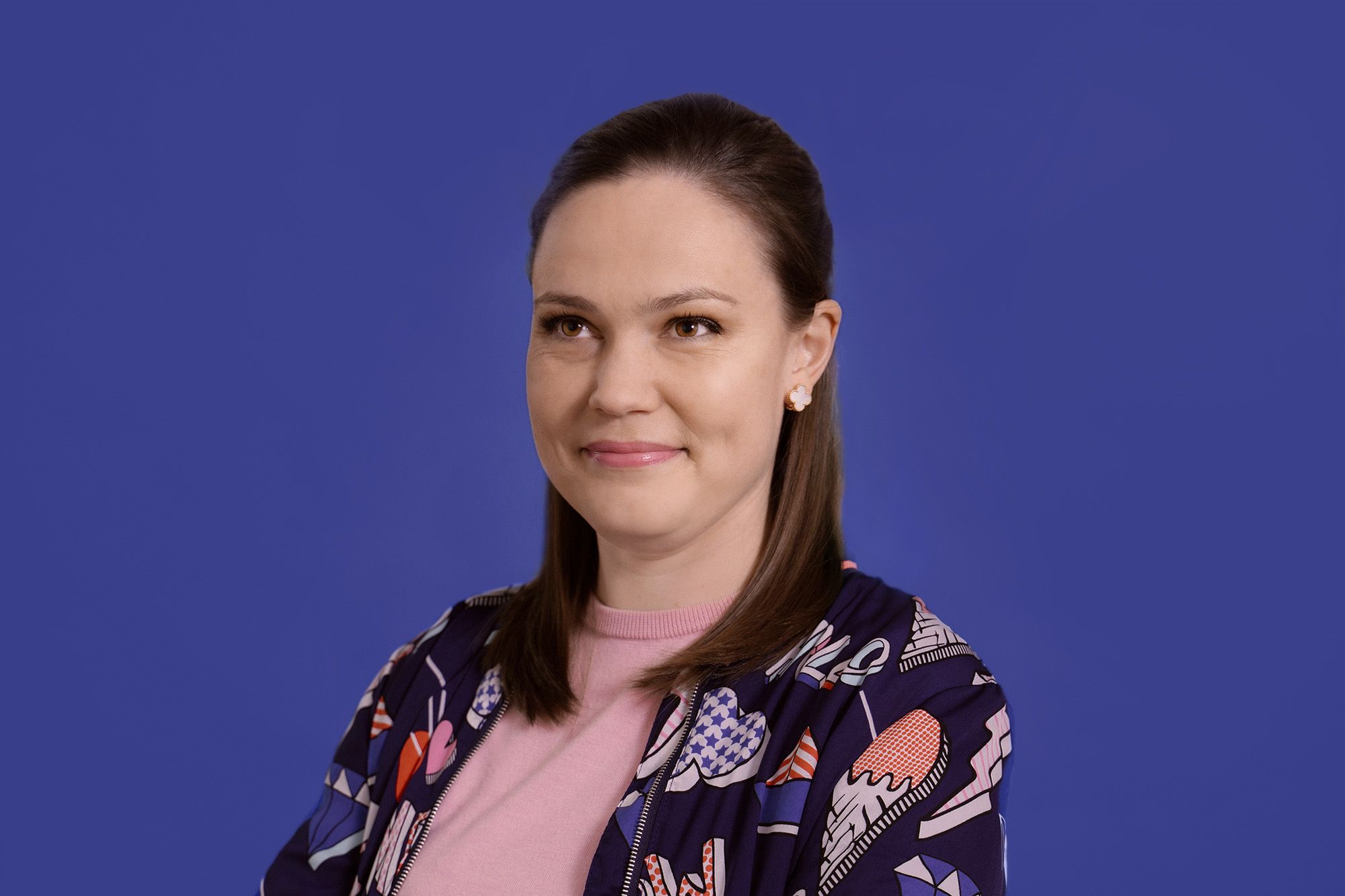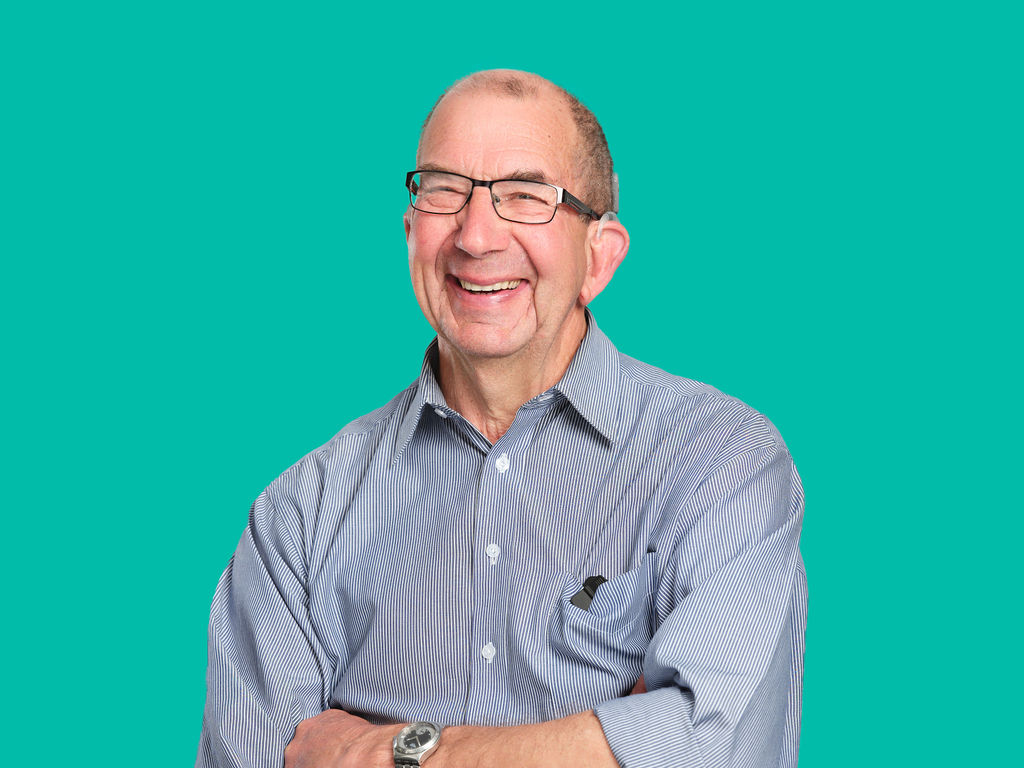A long-time member of Blind Citizens NZ, Thomas Bryan was involved in advocacy for the introduction of audio description in New Zealand. To mark the ten year anniversary of AD in Aotearoa, we sat down to hear Thomas’ thoughts about the emergence and importance of audio description in Aotearoa.
Kia ora, Thomas. Can you tell us a bit about your journey with audio description? How did you first become aware of AD?
I first heard of AD overseas, and I managed to get some videotapes brought back from the States that had audio description on them. I kept thinking, when are we going to get this here? In some ways, we’re always behind the eight-ball with accessibility in New Zealand, because of our population and because of the systems we use. But that was the beginning of the journey.
Wellington library had a small audio described VHS and DVD collection, and Blind Citizens NZ put on a screening for the community. We got some popcorn, we got speakers connected to the TV, and we sat down together to watch Driving Miss Daisy with audio description. For people who had no idea what AD was, it was such a game-changer.
What was the process of establishing audio description in Aotearoa like? Was it a long advocacy and campaigning process?
It really was. Blind Citizens NZ did a huge piece of work in that area, working with a consultant from Australia, as well as with Government, Broadcasters, and major accessibility champions. Like any campaign where you’re advocating for something a bit different, it’s a long journey to go on. I think if it was happening today it would be different – there’s a greater understanding of accessibility today, and there’s more legislation now, like the UN Convention on the Rights of Persons with Disabilities. So, it was quite a lengthy process, and without the support and input of so many people – in the core, and on the fringes – we wouldn’t be where we are today.
Do you remember the first time you turned the TV on and experienced Coronation St with AD?
Yes, we were all trying to get home to experience that first episode! That was back in the days when we didn’t have many channels on TV, and there wasn’t much to choose from. Even if Coronation Street wasn’t something you enjoyed, the fact that it was audio described at all meant that we wanted to watch it!
Since then, the number of hours of content has greatly increased, and now we are focussing on expanding the channels so that you can get it on, so that it’s not just TVNZ 1, 2 and Duke.
What impact has the existence of audio description on TV had for you?
It’s most definitely made a big difference for me. TV is a big part of life now. For me, listening to TV with AD is like listening to the radio in the early days – lots of plays used to go to radio first and then to TV, so the scripts were designed to be heard; but in more modern times so much information is conveyed visually. For fast-paced shows like Doctor Who, it can be so hard to follow without audio description. Another example is the programmes that jump between the past and the present, flitting between different stages of the character’s lives. Without AD, you have no idea whether it’s the present day, or twenty years prior – their voices are the same.
I would hardly watch TV if it wasn’t for audio description. There are some very visual programmes, and that I never would have thought to watch, but they are just beautiful with Audio Description. It means that other people don’t have to tell me what’s going on – which takes away from their enjoyment of the programme.
What have your favourite programmes with audio description been?
Oh, there have been too many to name! Doctor Who, Person of Interest.. Anything that has AD, I’ll give it a try! What I can say is I have tried to watch a number of programmes without AD and given up. But started to watch them when they included AD. Person of Interest was a classic case. I tried to watch it in a hotel where I couldn’t access AD, however, when I watched it at home with AD, I was hooked! Without AD I couldn’t follow it.
